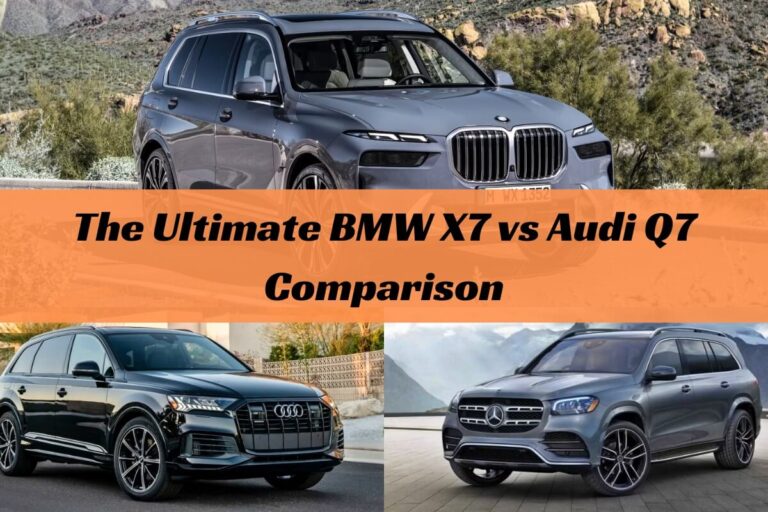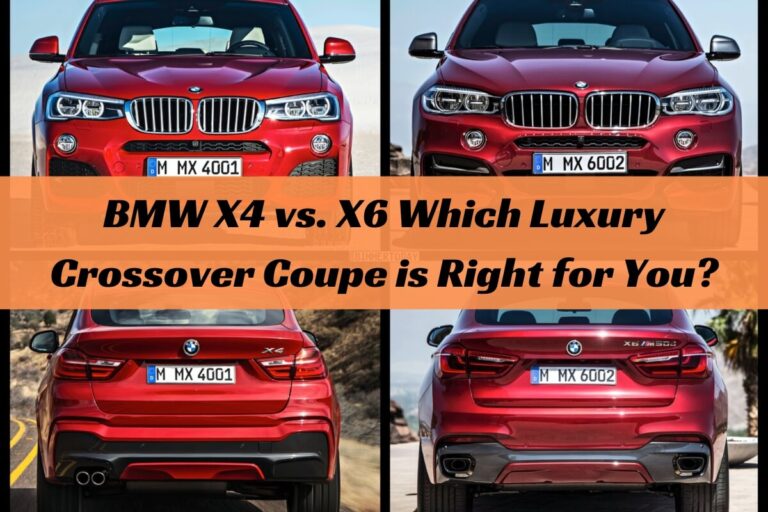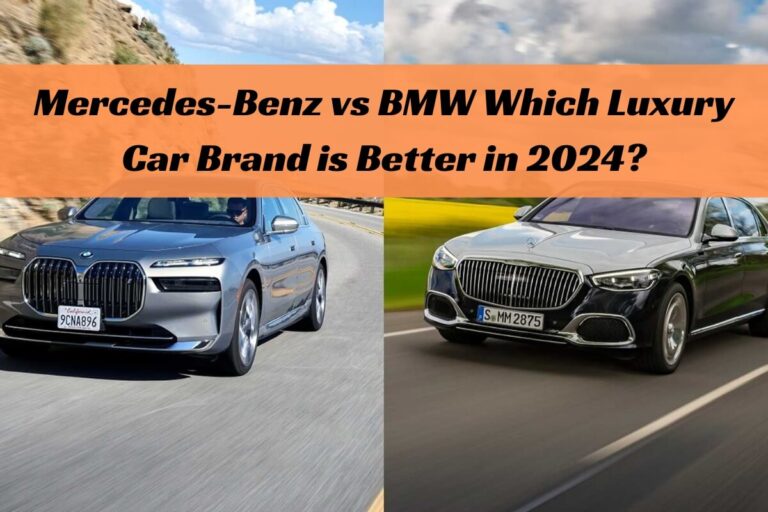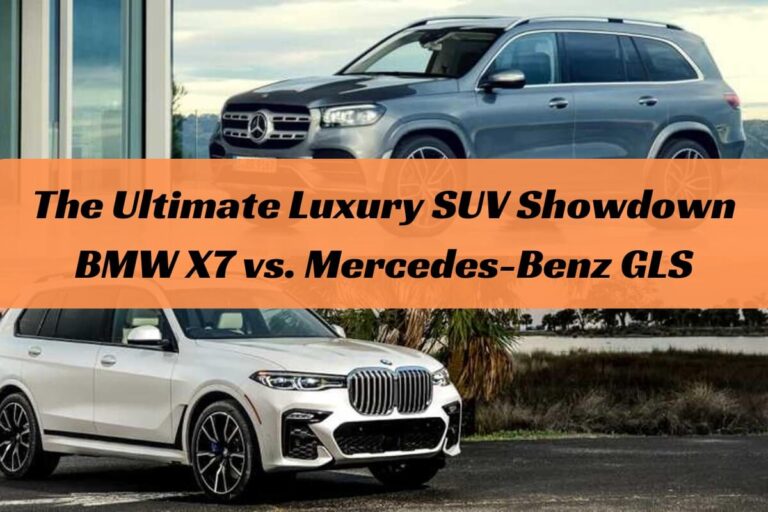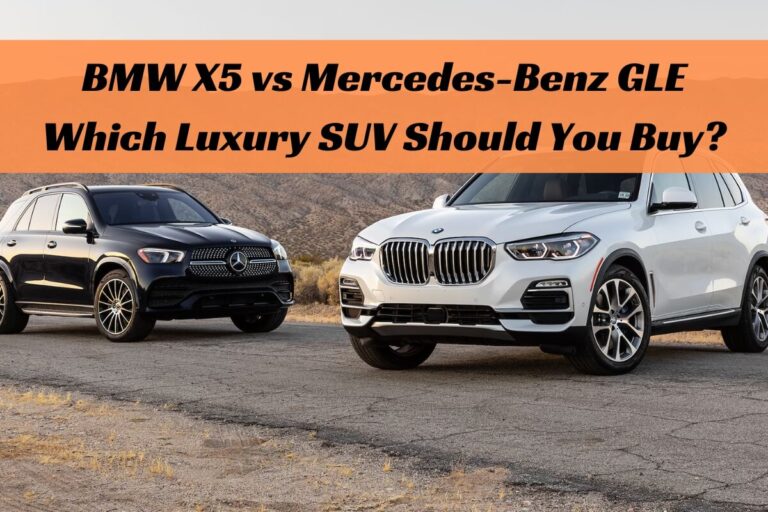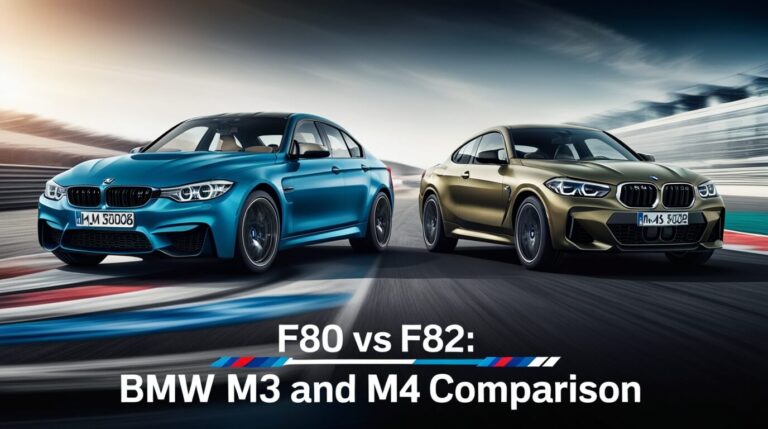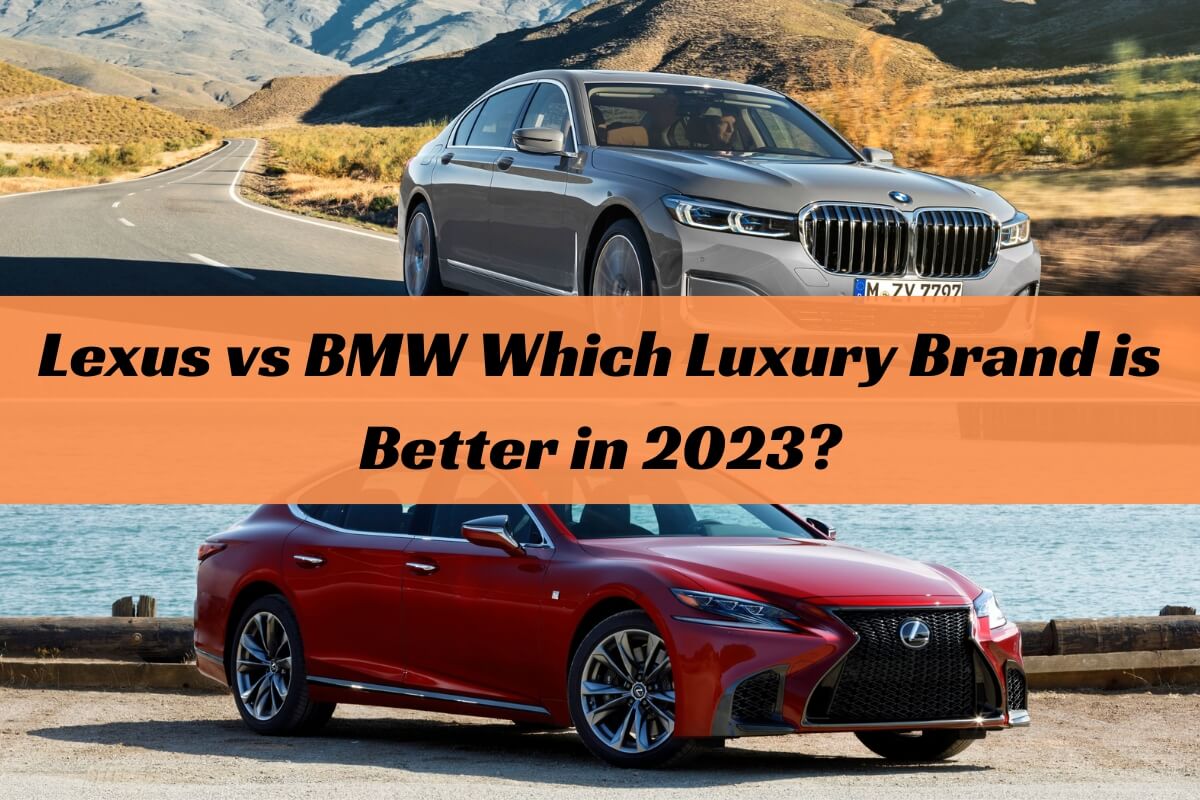
When it comes to premium luxury vehicles, Lexus and BMW are two brands that sit atop most car buyers’ consideration lists. Both have cultivated a reputation for superior craftsmanship, innovative technology and prestigious brand images over decades. But which is truly the better luxury vehicle brand in 2024 – Lexus or BMW?
The short answer is that Lexus holds an edge over BMW in key areas like long-term reliability, lower ownership costs, and better resale value. However, BMW counters with a performance driving experience and brand cachet that resonates with driving enthusiasts.
This in-depth comparison will examine how Lexus and BMW vehicles stack up across all the major considerations – dependability, maintenance costs, performance, safety ratings, brand perception and more. By the end, you’ll have a clear picture of the pros and cons of each to determine which brand better aligns with your specific wants and needs in a luxury vehicle.
Unbeatable Reliability and Dependability
One area where Lexus outshines not just BMW but the entire luxury vehicle segment is long-term reliability and dependability ratings. J.D. Power’s Vehicle Dependability Study examines problems experienced after three years of ownership across all major vehicle brands and nameplates.
In 2024, Lexus earned the top ranking for the 10th time in the last 12 years with just 133 problems per 100 vehicles – far below the industry average of 186. BMW’s score of 184 problems per 100 vehicles ranked a modest 15th. This trend of exceptional Lexus reliability holds true across other reputable industry scoring like Consumer Reports as well.
So whether you plan to keep your new luxury vehicle for a few years or well over a decade, the data indicates Lexus models are engineered to provide an ownership experience with fewer frustrating trips to the repair shop compared to BMW and most other competitors.
Lower Maintenance and Ownership Costs
In addition to scoring better on dependability studies, Lexus owners can also expect to pay substantially less in maintenance costs over the vehicle’s lifetime versus BMW owners. Numerous surveys and data aggregators estimate:
- Lexus owners pay around $550 annually in maintenance costs on average
- BMW owners pay closer to $1,000-$1,700 per year in maintenance costs
The lower frequency of repairs and service needs for Lexus gives it a major cost-of-ownership advantage against BMW right off the bat. This advantage is compounded by Lexus’ longer powertrain warranty coverage.
New Lexus models come with a 4-year/50,000-mile basic warranty that’s on par with BMW’s coverage. However, Lexus’ powertrain warranty extends to 6 years or 70,000 miles – providing 2 extra years and 20,000 miles of protection against expensive powertrain repair bills that BMW doesn’t cover under its 4-year/50,000-mile policy.
Maximizing Your Investment with Superior Resale Value
Whether you plan to keep your new luxury vehicle for just a few years or well over a decade, potential resale value is an important financial consideration. And here again, Lexus demonstrates a clear leadership position industry-wide including against BMW.
For the 2024 model year, the expert editors at Kelley Blue Book named Lexus the Best Luxury Brand for projected resale value after recognizing multiple Lexus nameplates like the LS sedan. No BMW models were awarded for resale value that same year.
Strong resale values don’t just pay dividends when it’s time to sell or trade-in your vehicle down the road. They also lower your overall cost of ownership while you’re still driving the vehicle since higher resale lessens the amount of depreciation you’re paying for compared to other models. It’s a win-win for Lexus buyers.
The Performance Driving Experience Tilt Toward BMW
While Lexus handily outpaces BMW in the areas of reliability, cost of ownership and resale value, BMW stakes its claim with a clear edge in the pure driving performance experience. BMW engineers its vehicles to provide a sportier, more engaging driving experience tuned for driving enthusiasts.
Lexus aims for a plush, smooth ride quality that soaks up road imperfections with refined suspension tuning and well-insulated cabins. BMW leans more toward direct responsive handling, communicative steering feel, and taut suspensions that allow you to “feel” more of the road.
This philosophy extends to powertrain performance as well. Lexus vehicles utilize hybrid and turbo powertrains focused more on efficiency, while BMW designs are normally aspirated with a focus on outright acceleration and speed.
For those who truly value maximum driving enjoyment during spirited back-road adventures, racing environments, etc. BMW’s performance-oriented philosophy gives it an edge over Lexus. However, for buyers who prioritize comfort and ease over outright performance thrills, Lexus will likely prove more satisfying.
Cutting-Edge Safety Tech and Top Safety Ratings
In terms of overall safety ratings and advanced technology, the competition between Lexus and BMW models is quite close without a definitive leader. Both brands perform extremely well in safety tests from authorities like:
- National Highway Traffic Safety Administration (NHTSA)
- Insurance Institute for Highway Safety (IIHS)
- Major third-party evaluators like Consumer Reports
The latest Lexus and BMW models are both available with comprehensive suites of advanced active safety technologies like:
- Automatic emergency braking
- Blind spot monitoring
- Rear cross-traffic alerts
- Lane keeping systems
- Adaptive cruise control
Lexus branded its package as Lexus Safety System+ while BMW calls its tech bundle Active Driving Assistant. There’s little differentiation between the two in overall feature sets and capabilities.
Most current Lexus and BMW vehicles achieve IIHS TOP SAFETY PICK+ awards – the highest possible safety rating from this leading independent assessor. Likewise, they routinely earn 5-Star overall ratings from NHTSA’s battery of crash tests.
So from a safety, driver assistance technology, and crash protection standpoint, both brands position themselves among the leaders in their respective segments without a clear advantage over the other. It comes down to particular model specifics or potential brand reliability differences influencing repair/replacement costs over time.
Head-to-Head Model Comparisons
To further showcase the key differences between Lexus and BMW products, let’s take a look at some direct model comparisons across their lineups:
Lexus NX vs BMW X3
The compact Lexus NX and BMW X3 compete directly as premium luxury crossover SUVs. The NX offers a surprising performance advantage thanks to its 275 hp turbocharged hybrid powertrain – outputting more horsepower and torque than the X3’s turbo 2.0L four-cylinder (248 hp).
Yet the NX starts around $5,000 less than the X3 at just $43,965, providing more bang for the buck in performance along with the Lexus advantages in reliability, resale value and ownership costs. Interior space is very comparable.
The X3 does hold an advantage for driving enthusiasts with its sporty rear-biased BMW driving dynamics and acceleration response tuned for performance over efficiency like the hybrid NX.
Lexus RX vs BMW X5
Moving up one size class, the midsize luxury SUV battle pits the Lexus RX against the BMW X5. Once again, the Lexus RX leverages its powerful turbo hybrid powertrain to provide performance on par with the output of the X5’s turbo inline-six (275 hp vs 335 hp).
And the RX achieves this level of performance while delivering substantially better fuel economy thanks to its hybrid tech – a key benefit for RX buyers more interested in efficiency than track-ready acceleration. The RX also provides more interior space than the X5 yet undercuts its pricing by thousands.
For those prioritizing the driving experience above all else, reviews indicate the latest X5 still has the edge over the RX in areas like steering feel and cornering dynamics. But for a more balanced blend of performance, efficiency, interior roominess and value, the RX makes a compelling case.
Lexus ES vs BMW 5 Series
Both the Lexus ES sedan and BMW 5 Series target the premium midsize luxury segment, but their different philosophies shine through. The ES aims for a plush, quiet, comfort-tuned ride experience with an available hybrid powertrain for efficiency.
Meanwhile, the latest 5 Series carries on BMW’s sporting luxury sedan heritage with responsive handling, powerful engine choices including V8 options, and a driver-focused cockpit layout. It also comes packed with more standard tech/convenience features but at a starting price several thousand higher than the ES.
Whether the ES or 5 Series better suits your needs comes down to prioritizing ultimate driving dynamics (5 Series) or prioritizing comfort, quietness and efficiency (ES) – a theme that emerges across most Lexus vs BMW model comparisons.
Lexus LS vs BMW 7 Series
Moving into the flagship full-size luxury sedan segment brings the comparison between the Lexus LS and BMW 7 Series. The LS continues Lexus’ formula of prioritizing smooth, isolated ride quality along with fuel-efficient hybrid powertrains and exceptional long-term dependability.
The 7 Series on the other hand represents the pinnacle of BMW’s performance luxury ambitions. From its available V8 and V12 engines to its cutting-edge tech like augmented reality displays, the 7 Series leans fully into ultimate driving dynamics and technological showcasing.
Pricing between the LS and 7 Series is quite comparable when you equip each to similar levels of equipment and powertrains. But the philosophies are distinct – the LS for unapologetic luxury comfort cruising and dependability, or the 7 Series for all-out performance and tech leadership.
Brand Image and Buyer Perceptions
Beyond all the objective data like specs, safety ratings and costs, brand images and perceptions among buyers are still a significant factor that influence many luxury vehicle purchase decisions. And in this arena, BMW does seem to hold an aura and aspirational appeal advantage over Lexus for certain buyer demographics.
BMW has cultivated an image over decades as the quintessential “driver’s car” and ultimate for driving performance enthusiasts – helped by motorsport heritage with highly-regarded products like the iconic BMW M line. This dynamic, performance-oriented branding resonates particularly well with younger, affluent professionals and driving enthusiasts of all ages.
Lexus on the other hand is perceived by many as a smart, pragmatic luxury choice. The brand has built a reputation for quality, reliability and strong resale value that appeals to buyers who prioritize low ownership costs and hassle-free ownership experiences over having the latest tech features or canyon-carving capabilities.
However, Lexus has made steady inroads in recent years in reshaping its bland, sedate brand image – thanks to bolder styling, the introduction of the F-Sport performance line, and new halo models like the LC grand tourer. While it may never fully shed its pragmatic brand roots, Lexus is gaining traction among driving enthusiasts and brand-conscious luxury buyers.
There’s certainly plenty of brand loyalty and advocacy on both sides. But in general, BMW’s brand cachet and aspirational appeal seems to maintain an edge over Lexus among buyers who view their luxury vehicle as an extension of their personal branding and enthusiasm for performance driving.
Which Luxury Brand is Right for You?
At the end of the day, there is no definitive “winner” when it comes to the battle of Lexus vs BMW. Each brand has distinct strengths and advantages that will align better for certain types of luxury vehicle buyers and their priorities.
If your main priorities are:
- Long-term reliability and dependability to minimize repair headaches
- Maximizing value through lower maintenance costs and strong resale value
- A plush, comfortable ride tuned for urban commuting and highway cruising
- Efficient hybrid powertrain options
…then Lexus is likely the better luxury vehicle choice for you over BMW’s sportier, performance-oriented offerings.
However, if you’re a driving enthusiast who relishes throwing your vehicle into corners and accessing every last ounce of performance, BMW’s historical emphasis on dynamics and motorsport pedigree will provide a more engaging, exhilarating ownership experience aligned with your priorities.
Those more concerned with outright luxury and technological showcasing regardless of driving characteristics may also gravitate more towards the likes of BMW’s Alpina sub-brand and flagship 7 Series. While Lexus delivers plenty of luxury, it doesn’t go quite as overboard into cutting-edge tech or in-your-face styling as some of BMW’s top offerings.
There’s certainly plenty of overlap between the two brands in terms of premium quality, safety standards and range of vehicle types and sizes. But their distinct philosophies mean each will hold specific appeals to different luxury vehicle buyers. Take an honest assessment of your personal priorities, and research model specifics, to make the most ideal choice between Lexus or BMW.

